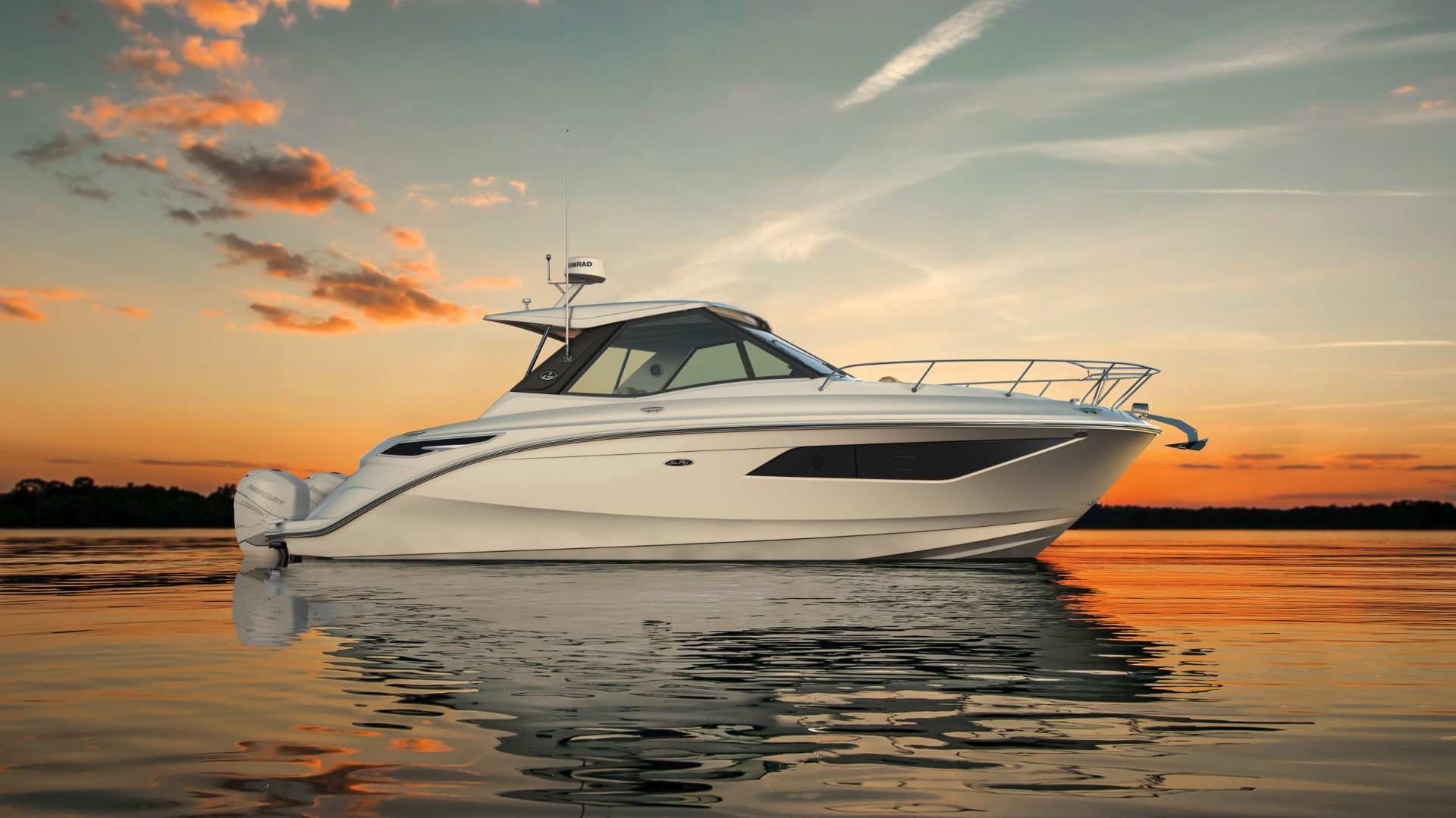Boat Values: Key Factors Influencing Market Prices
Determining the value of a boat can be a complex process. Various factors and resources are involved. Accurate boat valuation can help sellers set the right price and buyers ensure they are paying a fair amount.

This blog post will guide readers through the methods and tools available for assessing boat values.
Various online tools, such as those provided by NADA Guides, J.D. Power, and Boat Trader, are valuable for comparing boat prices.
These platforms offer real-time data and comprehensive listings, enabling users to find new and used boat prices, specifications, and photos.

Some websites also provide additional features, like cash offers from buyers or tips for buying, selling, and managing a boat.
Key Takeaways
- Accurate boat valuation helps sellers and buyers.
- Use online tools like NADA Guides and J.D. Power.
- Resources offer real-time data and comprehensive listings.
Understanding Boat Values
Boat values depend on many factors. These include the age, condition, make, and model of the boat, as well as its location and market demand.
Proper tools can assist in assessing these values accurately.
Boat Value Factors
Several key factors play a role in determining the value of a boat.
Age is important; newer boats generally hold higher values.
The make and model also influence worth with well-known brands being more valuable.
Condition is critical. A well-maintained boat will fetch a better price.
Location impacts value as boats in high-demand areas may be priced higher.
Size and length of the boat are significant too, with larger boats usually being more expensive.

Price Influencing Elements
There are specific elements that can affect boat prices.
Equipment and features such as modern navigation systems or luxury fittings can increase a boat’s value.
A boat's maintenance history also matters; consistent maintenance leads to a higher appraisal.
The market demand influences pricing. If there is a high demand for specific boat types or models, prices will rise.
Economic conditions also impact how much buyers are willing to pay, inflating or deflating prices accordingly.

Valuation Tools
There are multiple tools available for determining boat values.
The NADA Guides and ABOS Marine Blue Book are reliable sources for pricing information.
These guides offer a range of boat prices based on factors like age and condition.
The Boat Price Checker tool provides real-time data, making it useful for both new and used boats.
Using these tools, one can get an accurate market value of a boat, facilitating better decisions when buying, selling, or insuring a vessel.
Assessing Various Boat Types
When evaluating boat values, it's critical to consider factors like make, model, age, and additional features. Each type of boat has unique considerations that affect its worth.
Sailboats and Powerboats
Sailboats depend on wind for movement and often come with intricate rigging and sails that must be in good condition to maintain value.
Age, maintenance, and history of freshwater use can significantly impact a sailboat's worth.

Buyers should look for signs of wear in the sails and structure, as well as the presence of modern navigation systems like AIS (Automatic Identification System).
Powerboats, including powerboat types like speedboats and cruisers, value depends largely on the engine's condition.
Features like in-board vs. out-board motors, and newer tech installations can influence the price. Look for well-maintained engines, updated cooling systems, and no signs of rust or damage.
Cosmetics also play a role; a clean, well-kept interior can increase value.

Personal Watercraft and Fishing Boats
Personal Watercraft (PWC), such as jet skis, are evaluated based on engine hours, cosmetic conditions, and technological features.
They are smaller and often have a more extensive wear and tear from regular use. Check for hull integrity, safety features, and the overall condition of the craft.
Fishing Boats require special attention to fishing-specific gear, such as rod holders, live wells, and navigation systems.
Freshwater boats, generally, have higher values due to less corrosion.
Assessing the state of outboard motors, hull material (fiberglass vs. aluminum), and additional electronics is crucial.
Boats that have been well-maintained show less hull damage and have functioning, efficient engines.

Yachts and Specialty Boats
Yachts, often seen as luxury vessels, are valued significantly based on amenities and overall condition.
High-end features like advanced navigation systems, luxury interiors, and powerful engines are key value drivers.
The maintenance history, especially involving power systems and hull condition, plays a large role in a yacht's appraisal.
Specialty Boats, such as pontoon boats or catamarans, also have unique valuation factors.
For pontoons, the condition and material of the pontoons, along with deck quality, are critical.
Catamarans require a close inspection of their dual hulls and sail systems.
Additional features, like luxury seating or specialized fishing equipment, can significantly increase their market value.
The Buying and Selling Process
When buying or selling a boat, understanding the steps involved helps ensure a smooth transaction. Knowing how to price, value, and negotiate are key elements.
Price Expectations for Buyers
Boat buyers should start with research.
They can use tools like the NADA Guides and Boat Trader's Price Checker to get accurate pricing for different boat models.
Consider the make, model, age, and location of the boat. Used boats often come with equipment, which can affect the price.
Ensuring you are not overpaying for extras you don't need will help you find a fair price.
Comparing similar boats in the market can give a sense of what is reasonable.
Buyers should also look into any additional costs such as insurance, maintenance, and docking fees.
Valuation for Sellers
For sellers, determining the ideal selling price involves understanding their boat's current market value.
Factors like the boat's condition, age, and included equipment play a big role.
Sellers can use the NADA Guides to help establish a baseline.
Both buyers and sellers should consider a professional survey to provide an unbiased boat valuation.
Sellers should prepare a listing that highlights key features and any recent upgrades or maintenance.
Using clear and honest descriptions helps attract serious buyers.
Keeping records of all sales transactions and maintenance will provide transparency and build trust with potential buyers.
Negotiation and Closing
Negotiation is a critical part of the buying and selling process.
Both parties should be clear about their price expectations and be prepared to discuss them.
Sellers should be willing to negotiate but stay firm on their boat's value.
Buyers should come prepared with market research to support their offers.
During negotiations, addressing any concerns promptly can prevent misunderstandings.
Once a fair price is agreed upon, both parties need to finalize the paperwork.
This includes a bill of sale, registration transfer, and sometimes an inspection certificate.
Clear communication ensures the closing process is smooth, avoiding any last-minute surprises.
Additional Considerations
When evaluating boat values, it is crucial to examine factors such as insurance, loan options, maintenance, and market behavior. These elements can significantly influence the pricing and potential resale value of a boat.
Boat Insurance and Loans
Boat insurance is essential for protecting your investment.
Insurance costs depend on the boat's age, type, and value.
Older boats might have higher premiums due to the increased risk of damage or malfunction.
Loan options are important as well; banks use the boat's value to set loan limits and interest rates.
It is critical to have a detailed survey of the boat, which helps determine its true worth and influences both insurance and loan terms.
Owning and Maintenance Costs
Owning a boat involves significant ongoing costs.
Maintenance expenses include regular upkeep, repairs, and parts replacement to keep the boat in good condition.
Storage can also add to the overall cost, particularly if the boat is large and requires special accommodations.
These costs should be factored into the overall price of owning a boat.
Neglecting maintenance can lead to a decrease in the boat's value over time, making it harder to sell for a good price later.
Market Trends and Resale Value
The market value of a boat can fluctuate based on market trends.
High demand for certain boat types or models can drive prices up, while a surplus of similar boats can lower values.
Geography also plays a role in determining boat prices as regional preferences and the availability of water bodies can affect demand.
Staying updated on current trends ensures better resale value, as it helps owners make informed decisions regarding when to buy or sell a boat.
Resources for Boat Valuation
When looking to determine the value of a boat, there are several resources available. These include online pricing tools, professional appraisal services, and insights from dealers and manufacturers.
Online Pricing Resources
Many websites offer tools to help you understand boat prices.
Boat Trader provides a tool that lets users enter details about their boat, such as make, model, year, and location. This tool then analyzes the data to give a market valuation. It compares active listings and sold boat data to provide a low, average, and high price range for your boat.
NADA Guides (now part of J.D. Powers) is well-known for its vehicle valuation tools. It offers blue-book type specifications for watercraft. Users can find the fair market value by entering specific details about the boat. The results provide detailed pricing information, making it easier to determine a boat's worth.
BoatCrazy.com offers a similar service, helping users find the fair market value for boats they want to sell or purchase. After entering the boat details, users can unlock a detailed pricing report to get an accurate evaluation.
Professional Appraisal Services
Professional appraisals offer a reliable way to determine a boat's market value.
Certified marine appraisers, who are trained to evaluate the condition of the boat, will consider factors such as the boat’s age, wear and tear, and maintenance history.
These appraisers also compare recent sales data from similar boats to provide an accurate valuation. This service is particularly useful for valuable or unique boats where online tools might not be as precise. Additionally, professional appraisals are often required for insurance and financing purposes.
Dealer and Manufacturer Insights
Dealers and manufacturers can provide valuable information about boat values.
Dealers often have extensive knowledge of the market and can offer insights based on current trends and demand. They can also provide historical pricing information that might not be available through online resources.
Boat manufacturers sometimes publish guides or offer services to help customers understand the value of their boats. These insights come from years of manufacturing experience and market analysis. Accessing information directly from the source can give a clearer and more accurate valuation.
Regional Variations in Values
Boat values can greatly differ based on location and local market conditions. Different areas may show different levels of demand for specific types of boats, which directly impacts pricing.
Impact of Location and Zip Code
Location plays a crucial role in determining boat prices.
Coastal regions generally see higher values for fishing boats and sailboats due to the proximity to water. Conversely, inland areas may have less demand for these boats, lowering their market value.
Zip codes also make a difference. Wealthier areas might show higher prices due to greater demand and the ability of customers to pay a premium. Meanwhile, tourist spots often have elevated boat prices because of the frequent need for rentals and personal use.
Local Market Conditions
Local market conditions significantly influence boat prices.
Supply and demand dynamics in the area will shape what buyers are willing to pay. In regions where specific boat types are popular, there might be bidding wars that drive prices up.
Seasonal trends also play a role. During peak boating seasons, prices might spike due to increased activity on the water. Meanwhile, off-seasons might see a dip in boat values as fewer people are looking to buy. Local events like boat shows or fishing tournaments can also impact pricing factors and general interest.
Frequently Asked Questions
Understanding boat values involves assessing various factors such as market demand, age, condition, and equipment. This section provides answers to some of the most common questions about boat valuation.
How can I find the current market value of my boat?
You can find your boat's current market value by using pricing guides, such as the NADA Boat Value Guide.
Additionally, online listings of similar boats can offer insight into what others are asking. Hiring a professional surveyor can also provide an accurate assessment.
What factors influence used boat prices?
Used boat prices are influenced by factors such as age, condition, make, model, size, and location.
Market conditions, supply, and demand also play a crucial role. Boats with newer technology or popular brands usually hold higher values.
Where can I find a reliable source for used boat pricing?
Reliable sources for used boat pricing include the NADA Boat Value Guide and J.D. Power.
Professional boat surveyors also offer credible evaluations. Online platforms where boats are listed for sale can provide additional context regarding current market trends.
How does the condition of my boat affect its valuation?
The condition of your boat significantly affects its valuation.
A well-maintained boat with minimal wear and tear will have a higher value compared to one that needs repairs. Factors such as the condition of the hull, engine, and interior are critical in determining the price.
Are prices for boats with motors valued differently?
Yes, prices for boats with motors are generally higher than those without.
The type and condition of the motor add to the overall value. High-performance or fuel-efficient engines can increase the boat’s worth more than older or less efficient ones.
Can I get an accurate valuation for my boat online for free?
Online tools can give you a general idea of your boat’s value, but they may not be entirely accurate. Free online calculators and listings offer estimates.
For a precise valuation, consulting a professional or using paid appraisal services might be necessary.
Charlie is Editor-in-Chief of Sea Magazine







